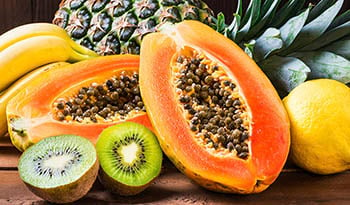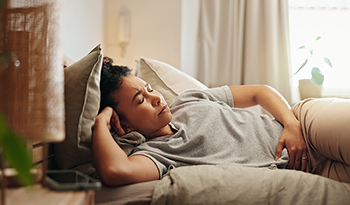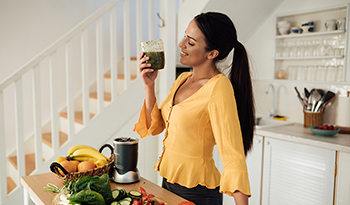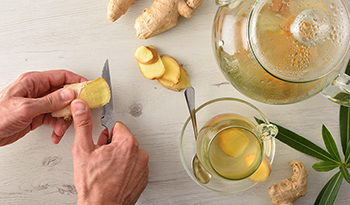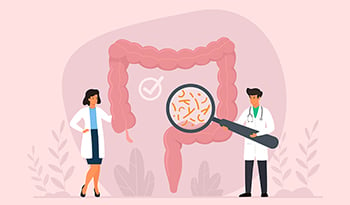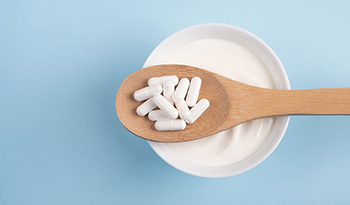Best Constipation Natural Remedies from a Dietitian: Foods, Tips, Supplements
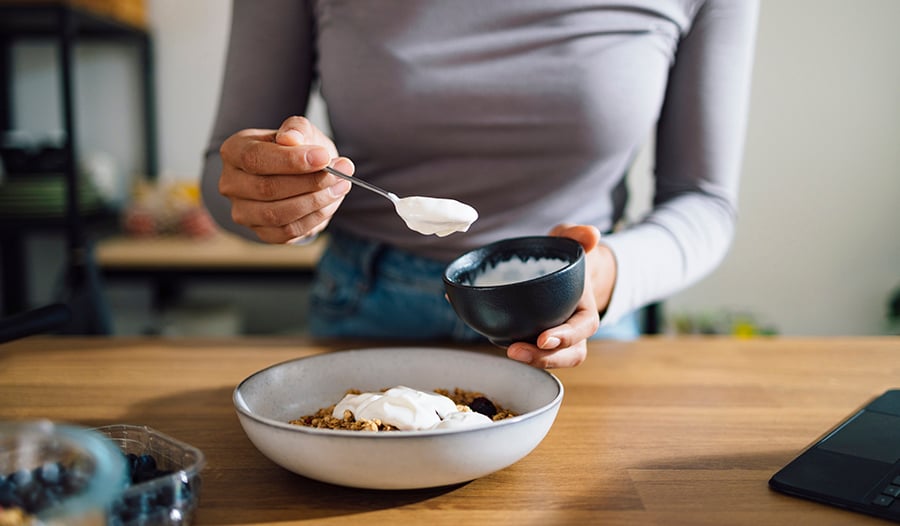
Constipation is a common gastrointestinal disorder that affects approximately 20% of adults, with the risk of constipation increasing for older adults. Constipation occurs when a person has infrequent bowel movements or difficulty passing stools. While constipation is generally described as having fewer than three bowel movements per week, a person can have a bowel movement daily and still be constipated!
If you have ever strained to have a bowel movement, passed a small, difficult stool only to return to the bathroom soon after to pass another hard-to-eliminate stool, or are experiencing abdominal discomfort or pain, a distended stomach, gas, bloating, nausea, or a loss of appetite, you may not be fully eliminating your bowels.
Regular bowel movements are important because they are a key way the body expels waste and toxins. While it is important to always talk with your doctor regarding changes to your health and bowel regularity, many gentle and effective natural remedies relieve constipation at home.
Common Causes of Constipation
A variety of factors can cause constipation, such as:
- Medications
- Low-fiber diet
- Lack of movement
- Dehydration or not drinking enough water
- Irritable bowel syndrome (IBS)
- Small intestinal bacterial overgrowth (SIBO)
- Gut dysbiosis
- Hormonal changes
- Under or overactive thyroid
- Ignoring the urge to release the bowels
- Life changes such as pregnancy, postpartum, or aging
- Abuse of laxatives
Common Symptoms of Constipation
While not being able to release the bowels fully is a common symptom of constipation, many other symptoms can point to constipation, even if you have a daily bowel movement.
- Infrequent bowel movements
- Difficult, painful bowel movements
- Abdominal discomfort or pain
- Gas
- Bloating
- Distended stomach
- Nausea
- Loss of appetite
- Feeling sluggish
What Is the Bristol Stool Chart?
The Bristol Stool Chart is a medical aid designed to classify feces into groups. Using the Bristol Stool Chart can provide insight into gastrointestinal health and evaluate the effectiveness of treatments for various bowel diseases.
To use the Bristol Stool Chart, look at your stool after having a bowel movement and assess its shape and texture. Classify the stool by comparing these characteristics to the chart below.
Bristol Stool Scale
- Type 1: Separate hard pieces of stool, like nuts or lumps
- Type 2: Sausage-shaped but lumpy
- Type 3: Sausage shaped with cracks on the surface
- Type 4: Sausage or snake-shaped, smooth on the surface
- Type 5: Soft blobs (pieces) with clear edges and easy to pass
- Type 6: Fluffy pieces, ragged edges, easy to pass
- Type 7: Watery, no solid pieces, liquid
The ideal stool types are type 3 and type 4. Type 1 and type 2 may indicate constipation, dehydration, not drinking enough liquids, or a lack of fiber. Types 5, 6, and 7 may indicate diarrhea. Knowing what a healthy stool should look like can help you adjust your diet or lifestyle to improve your gastrointestinal health.
How Constipation Is Diagnosed
Constipation can typically be diagnosed and treated at home through awareness of changing bowel movements and modifying diet and lifestyle. However, if constipation persists or for any concerns regarding your bowel health, make an appointment with your doctor to discuss your health, supplements, diet, and lifestyle.
Meeting with a doctor is essential to help identify or rule out:
- Blockages in the colon or rectum
- Nerve damage around the colon or rectum
- Diseases and hormonal imbalances that may lead to constipation
- Pelvic muscle problems
Treatments for Constipation
Diet modifications, stool softeners, laxatives, and adjusting medications are common treatment options for constipation. While laxatives can be helpful and essential in the short term, chronic laxative use can cause harmful effects. Laxatives can lead to an imbalance of electrolyte, especially when used for an extended period or misused. Gastrointestinal muscles can also lose their ability to function independently with chronic laxative use. Therefore, for ongoing constipation prevention and relief, diet modifications are essential.
9 Foods to Naturally Relieve Constipation
Consuming enough fiber is associated with many health benefits, including bowel regularity. Adults should aim to eat 20 to 35 grams of fiber per day. However, an estimated 95% of American adults and children do not meet their daily recommended fiber intake. Fiber-containing foods are plant-based and include fruits, vegetables, whole grains, beans, nuts, seeds, herbs, and spices.
Incorporate the following fiber-rich foods into your regular diet:
1. Ground Flaxseeds
Flaxseeds contain approximately 2.8 grams of fiber per tablespoon. Try adding a tablespoon of ground flaxseeds to a daily smoothie, bowl of oatmeal, or on top of yogurt.
2. Chia Seeds
One tablespoon of chia seeds has 4 grams of fiber! Add chia seeds to smoothies, energy bites, oatmeal, and overnight oats, or try making chia pudding.
3. Almonds
Almonds contain more fiber than almost any other nut! There are 3 grams of fiber in a one-ounce serving of almonds, which is 23 almonds.
4. Oats
Oats contain 3 grams of soluble fiber per half-cup serving. Soluble fiber provides many health benefits. It draws water into your gut, which can help soften stool and support regular bowel movements.
5. Magnesium
In addition to the foods above, adding a daily magnesium citrate supplement is a great way to help relax the bowel muscles and clear the bowels.
6. Dried Plums
Dried plums, also known as prunes, contain fiber essential for supporting regular bowel movements. Prunes also help bring water into the bowels, softening stool for easier elimination.
7. Lentils
Lentils aren’t just packed with plant-based protein—they’re also packed with fiber! One cup of cooked lentils contains approximately 13.1 grams of fiber. Lentils are great in soups, as a plant-based meat alternative in tacos or pasta sauce, or topped on a salad!
8. Chickpeas
Chickpeas are another fiber-packed bean that is delicious and incredibly versatile! One cup of cooked chickpeas contains approximately 12.5 grams of fiber. Add chickpeas to soups or salads, as hummus, or try them roasted as a crunchy snack!
9. Ginger and Ginger Tea
Ginger helps improve blood circulation and can also help to ease digestive irritation. Try drinking one to two cups of ginger tea daily to support bowel health!
Lifestyle and Wellness Habits to Relieve Constipation
In addition to eating fiber-rich foods, the following wellness and lifestyle habits can support bowel health:
Movement and Exercise
Movement helps to activate the gut and lower the time it takes for food to move through the large intestine.
Epsom Salt Bath
Epsom salts are compounds made of magnesium, sulfur, and oxygen. As you soak in an Epsom salt bath, your body absorbs magnesium through your skin. This can help relax the gastrointestinal muscles, making it easier to have a bowel movement.
Castor Oil Packs
Castor oil packs are made by pouring castor oil onto a wool or cotton material and applying that material across the midsection (or anywhere else the body needs support) and then applying a heat source such as a hot water bottle. This practice helps increase blood circulation to the treated area, providing numerous health benefits.
For bowel health, regular castor oil packs (three to four times a week) can make it easier to pass stool by helping to soften stool and bring circulation to the gastrointestinal tract.
Managing Stress
Stress can negatively impact gut health in various ways. Chronic stress can lead to inflammation in the digestive tract and contribute to the development of Irritable Bowel Syndrome, which may increase the risk of constipation.
Reducing and managing daily stress is essential for supporting gastrointestinal health and healthy, regular bowel movements. Adaptogens like ashwagandha can help support the body during stress and are known for their anti-anxiety, stress-relieving effects.
Adequate Sleep
The Enteric Nervous System (ENS) is a layer of nerves that surrounds your digestive tract, starting from the mouth all the way to the anus. There is also a strong connection between the ENS and the brain, known as the gut-brain connection.
When we are stressed or emotionally distressed, our brain communicates with our gut and ENS system. Stress, anxiety, and depression can all impact gut health and, in turn, bowel health as well.
Sleep is your body’s time to relax, rest, and repair truly. Ideally, you should aim to sleep between seven to nine hours every night to give your body adequate time for rest and repair. If you’re having trouble sleeping, you may benefit from a homeopathic sleep supplement with ingredients that help calm the mind and brain.
Proper Hydration
Symptoms of dehydration can include slow and sluggish metabolism, constipation, hard and hard-to-pass stools, and fatigue. Aim to consume at least half your body weight in ounces of water daily. Other foods and beverages that support hydration include naturally caffeine-free herbal teas and water-dense foods like cucumbers, watermelon, citrus fruits, bell peppers, lettuce, and grapes.
Another great tip for staying properly hydrated? Carry a water bottle to sip on water throughout the day easily.
Takeaway Tips to Prevent Constipation
Support healthy digestion and prevent constipation by incorporating the following dietary and wellness habits daily:
- Eat fibrous foods: Eat at least 20 to 35 grams of fiber every day.
- Drink plenty of fluids: Consume at least half your body weight (in pounds) in ounces of water.
- Stay active: Move your body daily!
- Magnesium: Add a daily magnesium citrate supplement to your regimen.
- Don’t ignore the urge to pass stool
- Manage and reduce stress
- Get a good night’s rest: Aim for seven to nine hours of sleep every night
- Create a bowel movement routine: A consistent morning routine gives your body the opportunity for regular bowel movements. Give yourself plenty of time to fully eliminate your bowels without feeling stressed or rushed.
References:
- Vazquez Roque M, Bouras EP. Epidemiology and management of chronic constipation in elderly patients. Clin Interv Aging. 2015;10:919-930. Published 2015 Jun 2. doi:10.2147/CIA.S54304
- WWEIA/NHANES 2009-2010 Data Tables: https://www.ars.usda.gov/ARSUserFiles/80400530/Pdf/0910/Table_1_Nin_Gen_09.Pdf
- Qin HY, Cheng CW, Tang XD, Bian ZX. Impact of psychological stress on irritable bowel syndrome. World J Gastroenterol. 2014;20(39):14126-14131. doi:10.3748/wjg.v20.i39.14126
DISCLAIMER:This Wellness Hub does not intend to provide diagnosis...














































































 Table of Contents
Table of Contents





